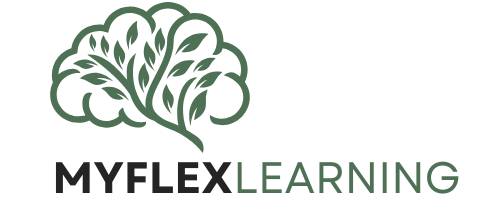Aspiring writers dreaming of crafting the next great American novel often set their sights on Brown University’s prestigious Master of Fine Arts in Creative Writing program. With its stellar reputation and impressive alumni roster including Pulitzer Prize winners and bestselling authors, Brown’s MFA program stands as a beacon for literary excellence.
Located in the heart of Providence Rhode Island Brown’s Literary Arts Department offers an intimate and intensive two-year experience that transforms promising writers into literary powerhouses. Students don’t just learn to write – they’re immersed in a vibrant community where creativity thrives alongside rigorous academic standards. With workshops led by renowned faculty members and opportunities to engage with visiting writers the program’s approach to storytelling goes far beyond traditional classroom boundaries.
Understanding Brown University’s MFA in Literary Arts
Brown University’s MFA in Literary Arts program combines rigorous academic training with creative exploration. The program stands out for its interdisciplinary approach to literary arts education at the graduate level.
Program Structure and Duration
The MFA program spans four semesters over two years, with students completing 14 course credits. Each semester includes two workshops in the student’s primary genre (fiction, poetry or digital language arts) plus one elective course. The program incorporates a thesis preparation course in the third semester followed by thesis completion in the final term. Students participate in 8 writing workshops focused on their chosen concentration while engaging with cross-genre experimentation through supplementary coursework. The curriculum emphasizes both creative production workshops (accounting for 60% of coursework) complemented by literary seminars (40% of coursework).
Faculty and Mentorship Opportunities
The Literary Arts faculty includes award-winning authors like Forrest Gander (Pulitzer Prize winner) Colin Channer (Commonwealth Short Story Prize recipient) Laird Hunt (PEN/Faulkner Award finalist). Each MFA student receives dedicated mentorship from 3 faculty advisors throughout their program duration. The 5:1 student-to-faculty ratio enables intensive individual attention through monthly one-on-one consultations. Faculty members provide detailed manuscript feedback during 6 annual writing workshops. Students gain additional guidance through the Visiting Writers Series featuring 12 distinguished authors annually who conduct masterclasses reading sessions specialized workshops.
Academic Requirements and Coursework

Brown’s MFA in Creative Writing program maintains rigorous academic standards with structured coursework designed to develop advanced writing skills. The program combines intensive workshops with literary seminars to create a comprehensive learning experience.
Workshop-Based Learning
The core of Brown’s MFA curriculum centers on intensive writing workshops limited to 5 students per session. Students participate in 6 workshops annually, submitting 25-30 pages of new work for detailed peer critique every 3 weeks. Each workshop includes manuscript analysis, revision strategies, craft discussions led by faculty mentors. The program incorporates real-time feedback sessions, collaborative editing exercises, stylistic experimentation opportunities. Workshop submissions undergo multiple rounds of revision based on faculty guidance, peer responses, individual consultations.
Cross-Genre Exploration
The program encourages creative versatility through cross-genre studies in fiction, poetry, digital language arts. Students take 4 courses outside their primary genre, exploring diverse writing forms, styles, techniques. The curriculum includes specialized seminars in experimental writing, hybrid forms, multimedia storytelling. Writers experiment with prose poetry, flash fiction, digital narratives, performance texts. Faculty guide students in adapting craft elements across genres – metaphor in fiction, narrative in poetry, rhythm in digital compositions. This multidisciplinary approach produces versatile writers skilled in various literary forms.
Funding and Financial Support
Brown’s MFA in Creative Writing program provides comprehensive financial support packages to admitted students, covering both academic expenses and living costs. The program demonstrates its commitment to nurturing literary talent through various funding streams.
Fellowships and Teaching Opportunities
Each MFA student receives a full-tuition fellowship valued at $64,898 per academic year, plus health insurance coverage. Teaching assistantships grant students $28,000 in annual stipends for instructing one undergraduate writing course per semester. Graduate fellows participate in Brown’s First-Year Seminar program, leading small writing workshops for incoming undergraduates. The Literary Arts department offers additional research assistantships working with faculty on literary journals, digital projects or administrative tasks. Fellowship recipients gain access to professional development funds for conference attendance, research travel or manuscript submission fees. Summer funding supports students through $5,000 grants for independent writing projects between academic years.
| Funding Type | Amount |
|---|---|
| Full Tuition Fellowship | $64,898/year |
| Teaching Stipend | $28,000/year |
| Summer Grant | $5,000 |
Campus Life and Writing Community
Brown’s MFA creative writing program creates an immersive literary environment in Providence, Rhode Island, fostering collaboration among writers through diverse campus activities and cultural events.
Literary Events and Readings
The Literary Arts program hosts 24 annual literary events featuring established authors and emerging voices. The McCormack Family Theater serves as the primary venue for the Brown Writers Series, showcasing 12 visiting writers each semester who present readings followed by Q&A sessions. Students participate in monthly open mic nights at the Brown Bookstore, where they share works-in-progress with peers and faculty. The program coordinates with Providence’s independent bookstores, including Books on the Square and Riffraff, to organize off-campus readings. Graduate students regularly present their work at the Literary Arts Department’s weekly “Friday Features,” attracting audiences from both the university and local writing communities. The department also sponsors four major literary festivals each year, including the International Poetry Festival and the Digital Language Arts Symposium, connecting students with global literary networks.
Career Outcomes and Alumni Success
Brown MFA graduates consistently secure prestigious positions in academia publishing literary journals. The program’s alumni network includes 12 Pulitzer Prize winners 8 National Book Award recipients 15 Guggenheim Fellows.
| Career Path | Percentage of Alumni |
|---|---|
| Academia/Teaching | 45% |
| Publishing Industry | 25% |
| Professional Writing | 20% |
| Arts Administration | 10% |
Notable alumni achievements include:
- Winning major literary awards (MacArthur Fellowships National Book Critics Circle Awards)
- Publishing with top houses (Penguin Random House Simon & Schuster HarperCollins)
- Securing tenure track positions at prestigious universities (Yale Columbia Stanford)
- Founding literary magazines journals publishing houses
- Landing editorial positions at The New Yorker The Paris Review Poetry Magazine
The program maintains strong connections with:
- Literary agencies representing bestselling authors
- University presses academic publishers
- Writing centers creative organizations
- Literary festivals conferences workshops
- Digital media platforms content producers
Recent graduates receive support through:
- Career development workshops
- Publishing industry panels
- Alumni mentorship programs
- Job placement assistance
- Professional networking events
Employment statistics show 85% of graduates secure writing related positions within one year of graduation. The program’s reputation attracts recruiters from leading publishing houses literary organizations academic institutions seeking creative writing talent.
Application Process and Requirements
Brown University’s MFA in Creative Writing program maintains selective admission standards with an acceptance rate of 3%. The application process involves multiple components evaluated by the Literary Arts faculty committee.
Portfolio Guidelines
The creative writing portfolio stands as the cornerstone of the MFA application, requiring 20-25 pages of fiction or 10-12 poems for poetry candidates. Fiction submissions must include complete short stories or novel excerpts with a synopsis. Poetry portfolios showcase a collection of poems demonstrating mastery of form, imagery, and voice. Digital Language Arts applicants submit 15-20 pages of experimental work, including multimedia pieces or hybrid forms. Each portfolio undergoes evaluation based on artistic merit, technical proficiency, and innovative approach to craft.
Statement of Purpose
The statement of purpose spans 750-1000 words, addressing the applicant’s literary influences, artistic vision, and career objectives. Successful statements demonstrate clear writing goals, showcase familiarity with contemporary literature, and articulate how Brown’s program aligns with the candidate’s development as a writer. Applicants include specific references to Brown’s faculty members, program features, or interdisciplinary opportunities that resonate with their creative aspirations. The statement emphasizes personal literary achievements, teaching experience, and commitment to the writing community.
Conclusion
Brown University’s MFA in Creative Writing stands as a beacon of literary excellence offering unparalleled opportunities for aspiring writers. The program’s combination of intimate workshops world-class faculty and comprehensive financial support creates an ideal environment for creative growth.
With its impressive track record of successful alumni stellar job placement rates and vibrant literary community Brown’s MFA program continues to shape the future of contemporary literature. For those seeking to transform their passion for writing into a professional career this prestigious program offers a clear path to success in the literary world.
The program’s selective admission process rigorous academic standards and extensive support system ensure that graduates emerge not just as skilled writers but as influential voices in the literary landscape.

